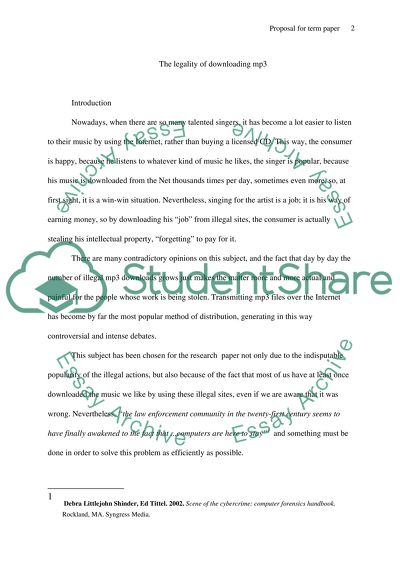Cite this document
(“The legality of downloading mp3 Research Paper Example | Topics and Well Written Essays - 1500 words”, n.d.)
Retrieved from https://studentshare.org/miscellaneous/1565201-the-legality-of-downloading-mp3
Retrieved from https://studentshare.org/miscellaneous/1565201-the-legality-of-downloading-mp3
(The Legality of Downloading Mp3 Research Paper Example | Topics and Well Written Essays - 1500 Words)
https://studentshare.org/miscellaneous/1565201-the-legality-of-downloading-mp3.
https://studentshare.org/miscellaneous/1565201-the-legality-of-downloading-mp3.
“The Legality of Downloading Mp3 Research Paper Example | Topics and Well Written Essays - 1500 Words”, n.d. https://studentshare.org/miscellaneous/1565201-the-legality-of-downloading-mp3.


